Helping Our Kids Question Narratives and Think Critically in Science
The Nature of Rest
What the Bible and Creation Teach Us About Sabbath Living
Intentional Parenting
Nature Studies
Apologetics
Adventure
Free Resource
Entrepreneurship
Homeschooling
Faith
Books
Categories
Master Naturalist, Bible teacher, author, wife, and mama of four! Join our adventures of discovering God while adventuring in creation.
I'm Eryn
Hey there!
Listen Now
Order now
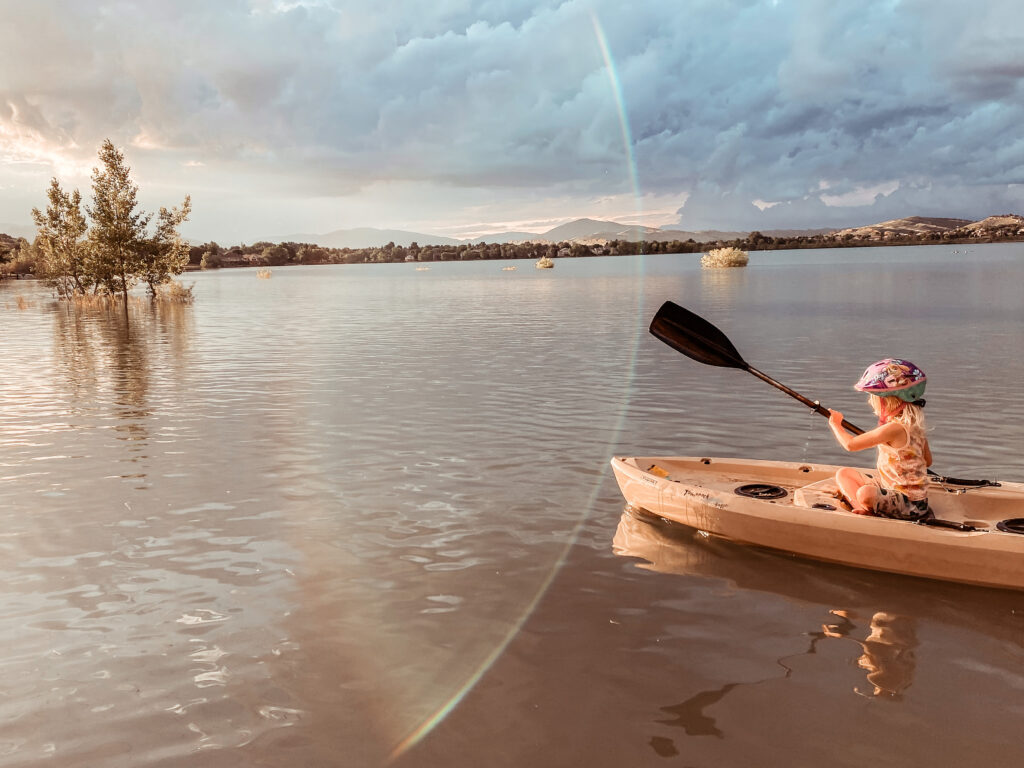
After hitting “Play” on a podcast, I quickly realized it wasn’t what I expected. Of course, I should have anticipated a lesson about plant life might begin where much of the scientific discussion does: in the sea.
In this particular conversation, the adult host was having a lively conversation with a child co-host about how plants and humans share a common ancestor and how we all began, long, long, long ago, as a single cell in the water.
It was a simplified explanation of evolutionary theory. I hit pause and challenged my kids in the backseat: “How do you think a single-cell organism, something so simple with only one cell, could develop into complex life? How can it change into something so incredible as a human being who can think, create, love, and show compassion?”
My ten-year-old son didn’t think twice, “It can’t.”
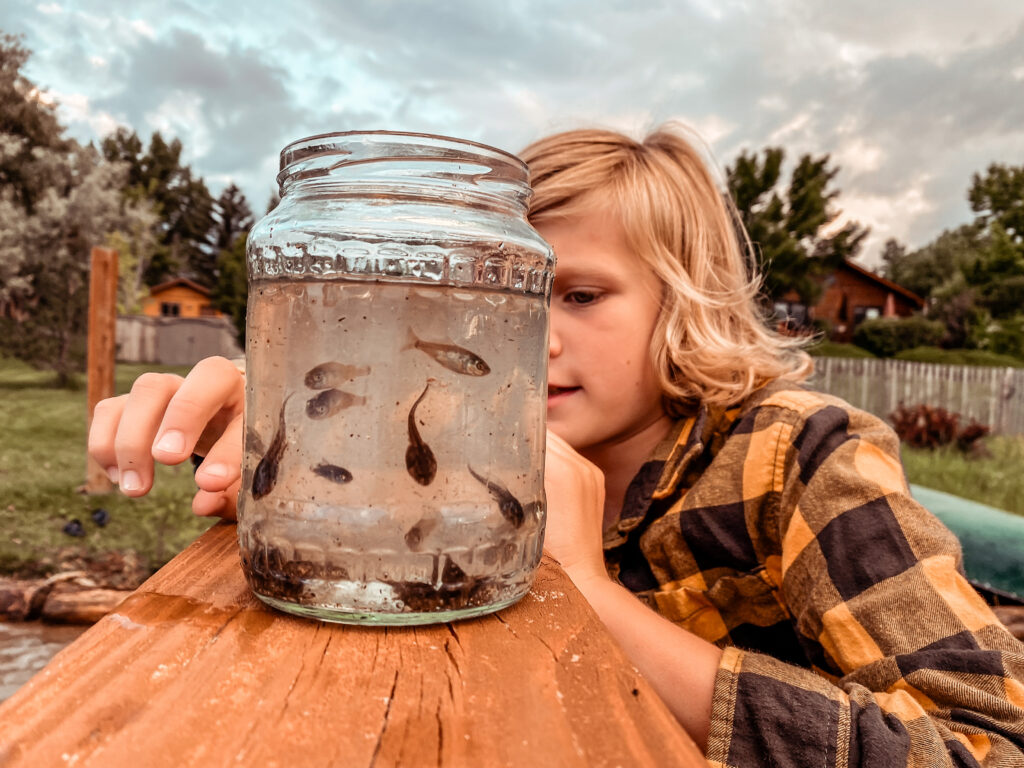
I wanted to challenge my kids to ask good questions during our conversation in the car that morning. Not simply to refute what they hear because it opposes our beliefs, but to take it further: to have an actual conversation, ask probing questions, and explore the available evidence, rather than believing something simply because someone says it’s a fact.
“Do you hear what they’re doing here?” I asked my kids, “They’re presenting the concept of evolution as reality, even though it’s an idea—a theory. It’s a way of seeing and interpreting evidence. It’s what we call a ‘worldview,” or how a person sees the world, people, and God. But although it’s a way of seeing things, it’s often presented as reality.”
I continued, “But it’s convincing, right? Coming from someone with authority, an adult who has a podcast? Even so, we must ask good questions, like, ‘How do we know we come from a single cell?’ Well, we don’t. It’s an idea—a theory. And one that the fossil record does not support well.”
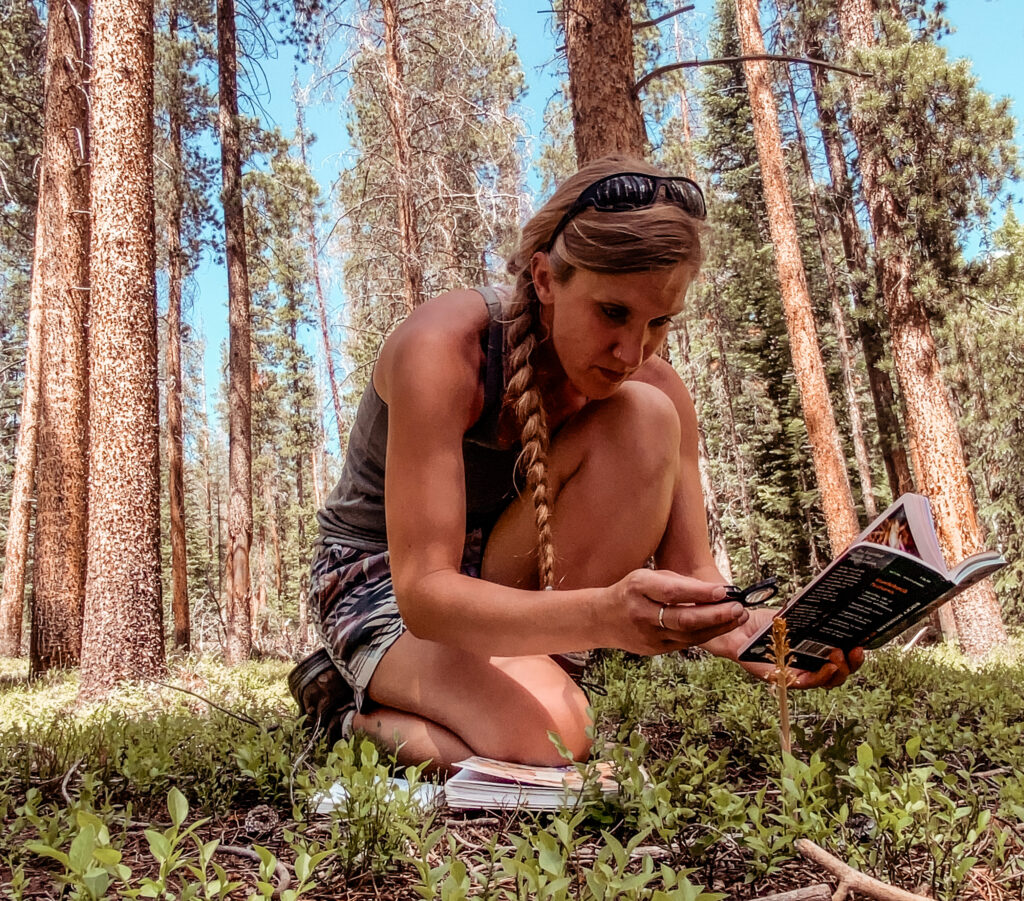
As I research science from both sides of evolutionary theory and the idea of intelligent design, I share my findings with my kids—bringing in ideas from both sides and helping them sort evidence. This conversation is discipleship, a discussion that will continue throughout our time raising them and beyond. In the car that morning, we practiced asking questions and thinking critically. I also encouraged them, “Don’t just question evolution. Question what I tell you also. Question what we believe about Christianity.”
Between all this conversing, I’d hit Play, and we’d listen to the conversation, then pause and further discuss. At one point, the hosts were describing this change from simple, single-cell life to complex life. “Scientists believe…” They said, to which I paused and clarified, “Some scientists believe. While others are researching and seeing the gaps and weaknesses in this theory.”
The host continued, explaining how one idea (I appreciate she used the word “Idea”) is that a single cell in the water absorbed another cell, becoming two cells together. She said that over billions of years, this multi-cell thing might have changed, then, over billions of years more, it might have changed again, then, over billions of years…..Do you get the idea? As we stretch this idea further and further back in time, the timeframe becomes so inconceivable that our minds are more willing to accept any ideas, because with that kind of timeline, well, who knows what could have happened?
I hit pause again. “Do you notice anything about what she’s saying?” I asked my kids. My oldest put it well: “That’s a whole lot of ‘might haves…’”
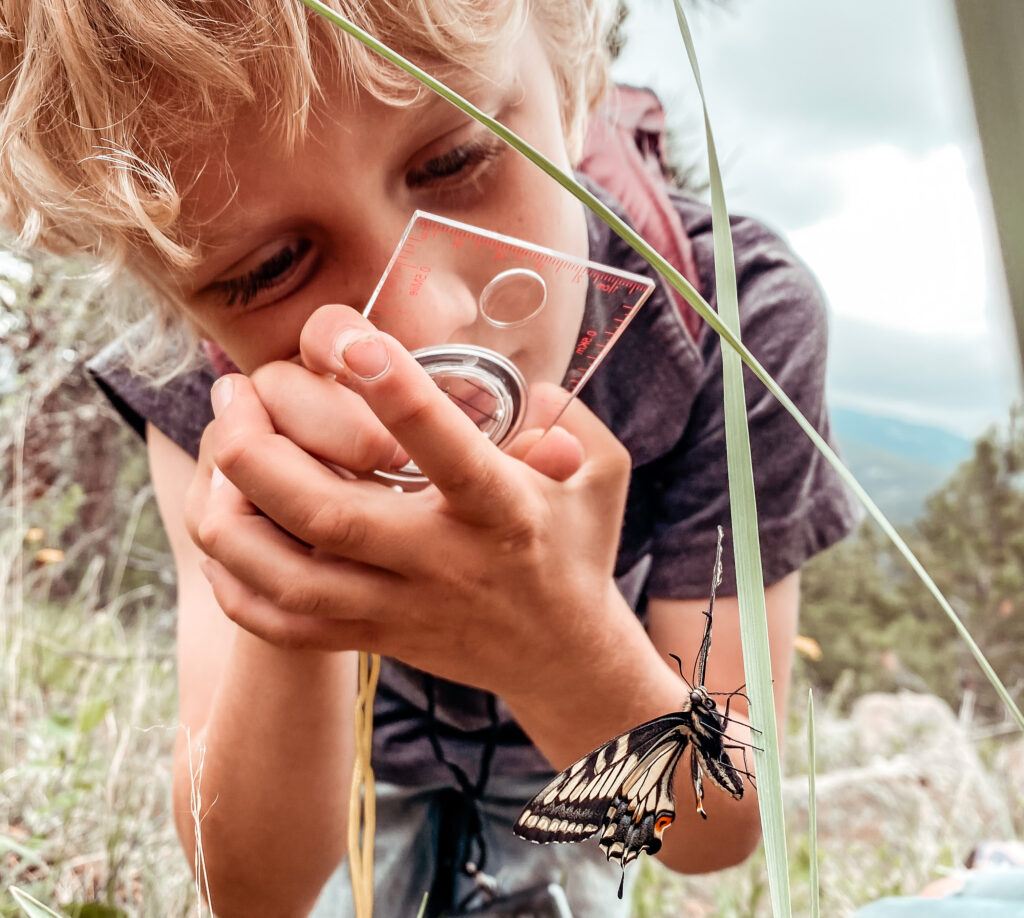
“Yes,” I agreed with him. “And we can compare those ‘might haves’ to all the archaeological, historical, and scientific evidence we have for the Bible and a Creator. Like all the manuscripts and evidence carrying eye-witness records for Jesus and supporting what the Bible says. And the more we look at nature, we see engineering. Do you know what engineering requires? Thought and creativity. We don’t see random chance but actual reason behind the designs in nature. We can compare all that evidence to all these ‘might haves’ in the idea of evolution.”
My goal in the car and this article is not to convince my kids (or you, the reader) against evolution or intelligent design but to show the importance of searching these things out and not believing them at face value: whether that be in a classroom teaching evolutionary theory as reality, or in a Sunday School classroom teaching “Because the Bible told me so.” Our kids were created to think deeper than that.
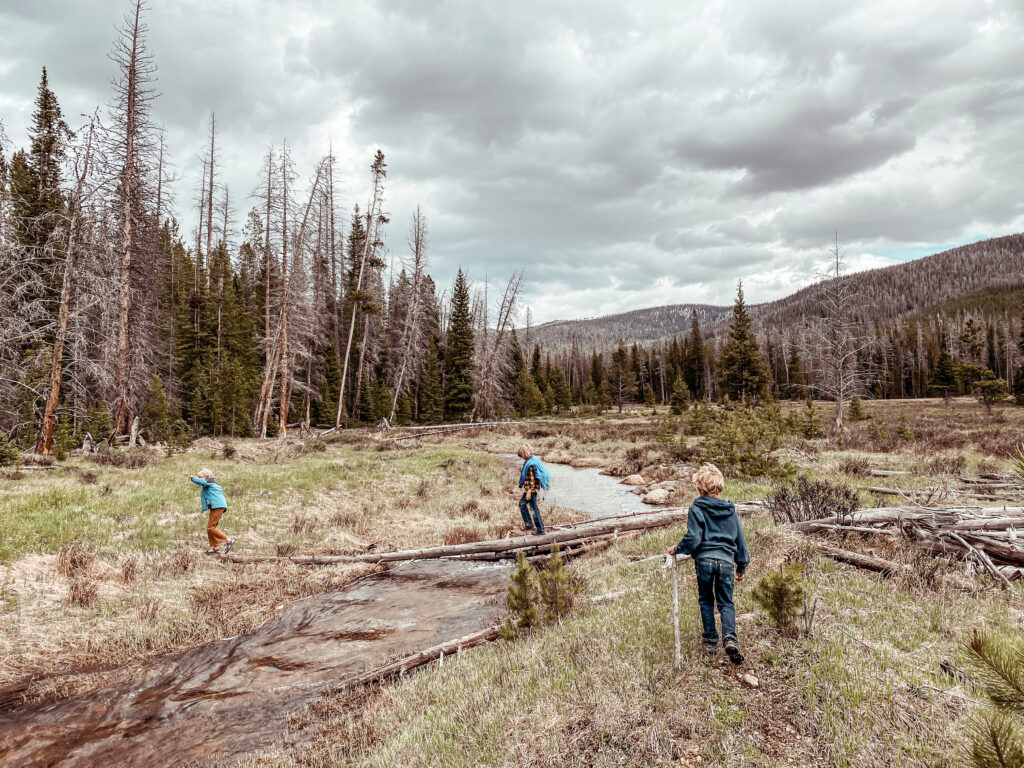
God designed us with curiosity and intelligence, and we can use both of those and encourage those qualities in our kids to pursue truth, or if you prefer: reality. God calls us to this hard work of intellectual faith. Matthew 22:37 says, “You shall love the Lord your God with all your heart and with all your soul and with all your mind.” When we engage cultural ideas with our minds rooted in Scripture and devoted to wise and diligent investigation, we love God with the intellectual capacity he has given us.
Each of these conversations is an opportunity. And as we make space for them in our homes, our kids can see how science does not refute our beliefs, but rather how science reflects our Creator. They can experience the joy of learning something new about the natural world, and seeing how that knowledge bolsters our faith.
Here are questions you can ask the next time you hear and idea, or theory, presented as fact:
- What idea are they talking about or trying to teach?
- Are they presenting it as an idea, or as a fact (something proven to be reality?)
- If they are presenting it as fact, what evidence are they giving?
- How strong is that evidence? (Here’s a good opportunity to dig in deeper and explore both sides)
In all of this, it’s so important that we remind our kids that these are very big conversations with a whole lot of opinions (and at times, a lot of emotion). We can serve God well and reflect his love and excellence by remaining respectful and kind.
“But in your hearts revere Christ as Lord. Always be prepared to give an answer to everyone who asks you to give the reason for the hope that you have. But do this with gentleness and respect.” 1 Peter 3:15
Making space for these conversations doesn’t require a degree in biology or theology. All it requires is a willingness to go with your child into God’s Word, his created world, and to do the work of researching ideas. You can get started today with my book, Rooted in Wonder: Nurturing Your Family’s Faith Through God’s Creation. In it, I provide examples of conversations we’ve had in our home along with practical activities.
Further Resources:
I have a list of recommended books my kids and I have used to help us explore these ideas at https://erynlynum.com/bookshelf
A podcast I recommend that does a great job of sharing information from both sides and providing evidence-rich ideas is The Creation Podcast by The Institute for Creation Research.
Along with our own podcast, Nat Theo: Nature Lessons Rooted in the Bible
learn more
Raising kids stirs something deep in our souls — an innate knowing that our time is finite. Taking my kids outside in creation, I’m discovering how to stretch our time and pack it to the brim with meaning. God’s creativity provides the riches of resources for teaching the next generation who He is and how He loves us. Join our adventure and discover inspiration and resources for refusing rush, creating habits of rest, living intentionally, and making the most of this beautiful life!
I'm Eryn, Master Naturalist, Author, & Bible Teacher
Hey there!
Receive free inspirational resources for refusing rush, creating habits of rest, parenting with intentionality, and teaching our kids who God is through what He has made!
Inspired
Be
Brand + Website by Amarie Lael Design | TERMS & CONDITIONS + PRIVACY POLICY | Copyright 2011 - 2026 Eryn Lynum
Contact
Speaking & media
About
Books
Shop
Videos & Interviews
Email List
Stories
Free Downloads
Resources
Home
@erynlynumauthor
The Nature of Rest
What the Bible and Creation Teach Us About Sabbath Living
Now Available!
Order
X
Signed Copy
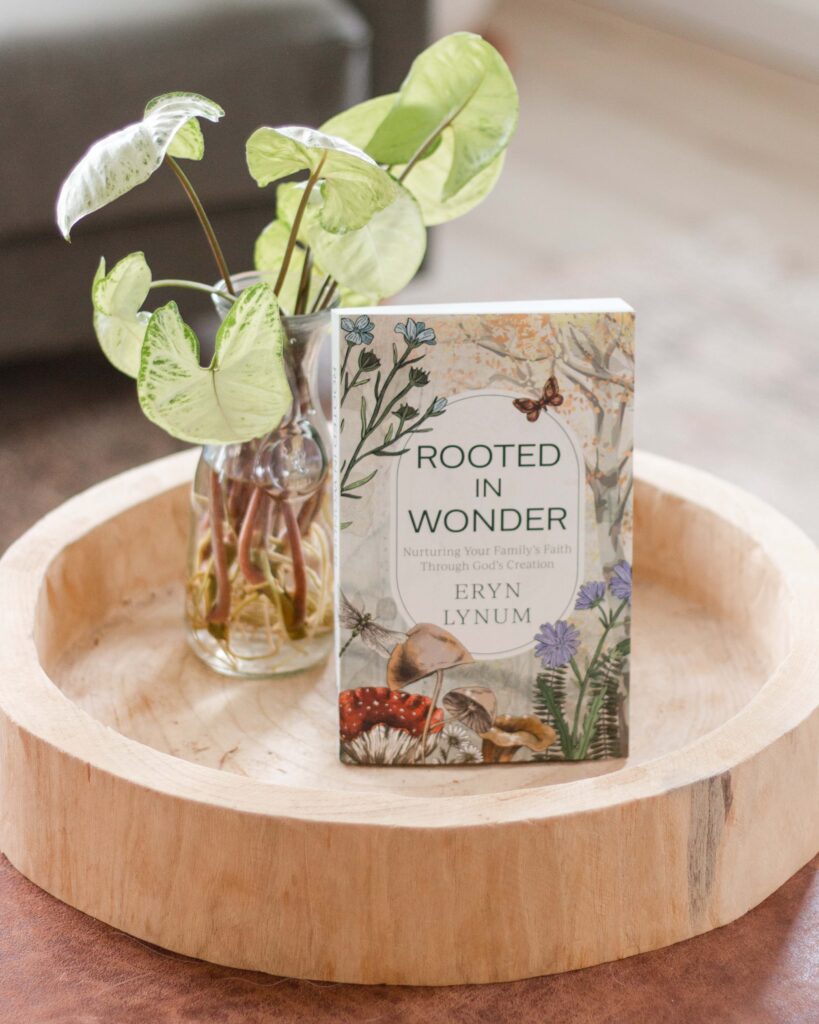
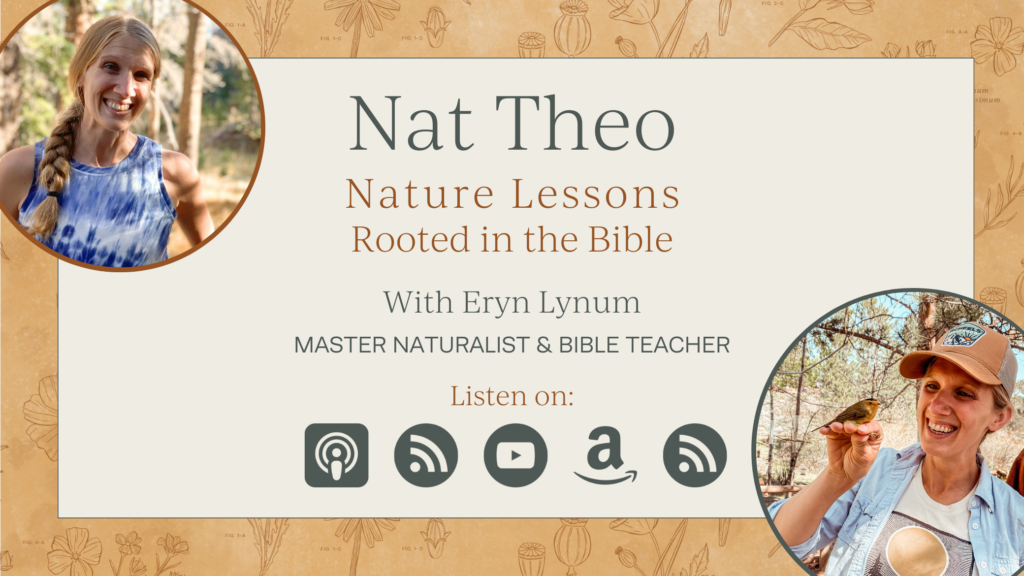
Add a Comment